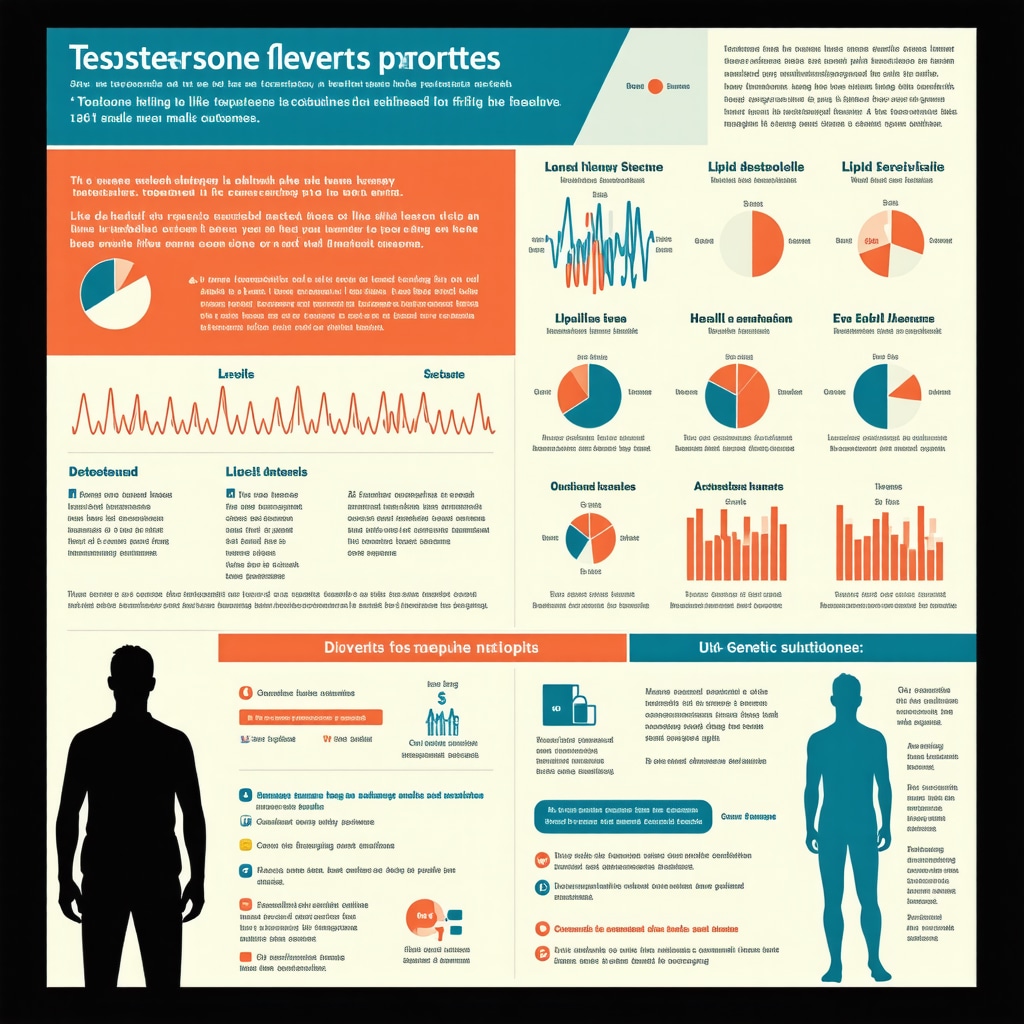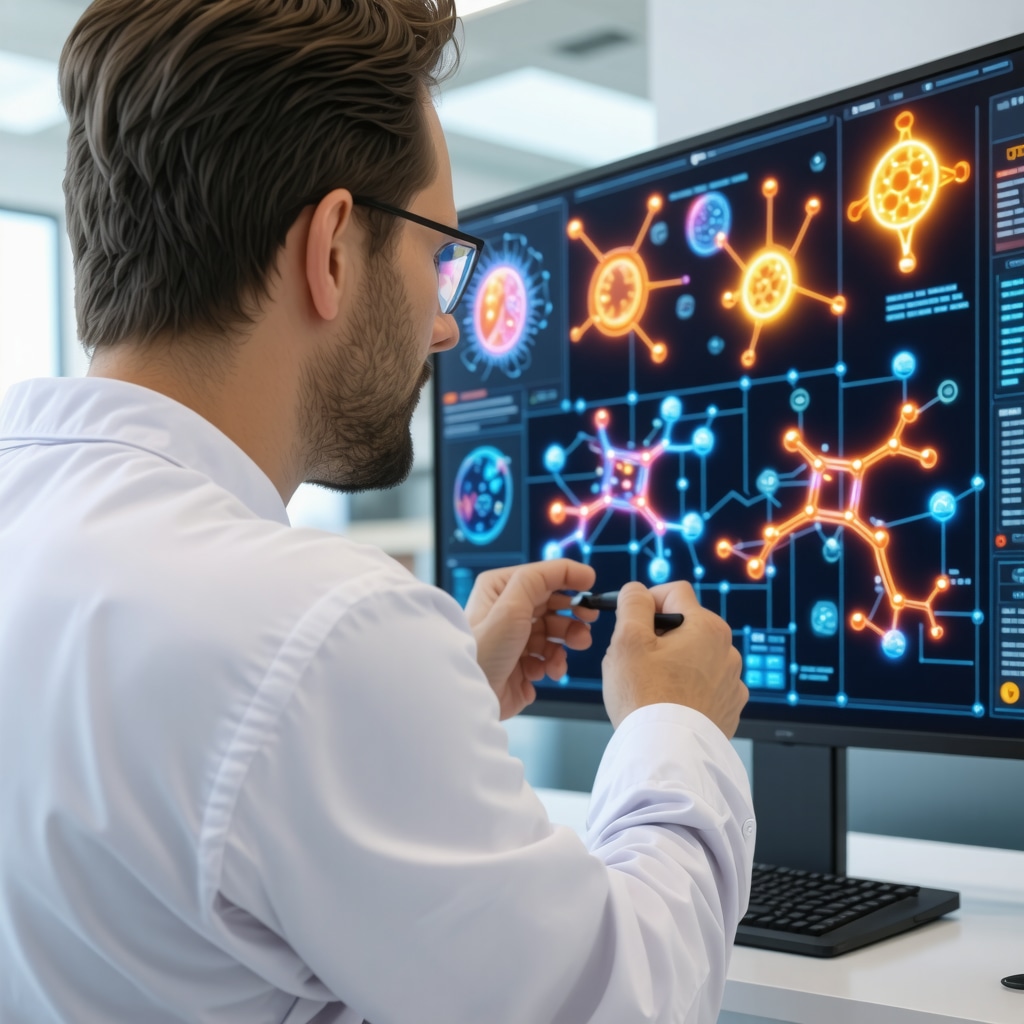Unveiling the Silent Signals: When Low Testosterone Demands Attention
In the vibrant city of San Diego, men’s health is increasingly spotlighted, yet many overlook a subtle yet impactful player: testosterone. Low testosterone, or hypogonadism, can stealthily erode vitality, mood, and overall well-being. Recognizing the early signs you need low testosterone treatment in San Diego can empower men to reclaim their health before symptoms escalate. This article dives into the nuanced indicators and expert advice to guide you toward optimal hormone balance.
Beyond Fatigue: The Multifaceted Symptoms That Signal Low Testosterone
Low testosterone doesn’t merely cause tiredness; its manifestations ripple across physical, emotional, and cognitive domains. Men might experience diminished muscle mass, increased body fat, and a notable decline in bone density, predisposing them to fractures. Psychologically, irritability, depression, and decreased motivation often surface. Cognitive fog, including impaired memory and concentration, further complicates daily life. These symptoms intertwine, often mistaken for aging or stress, delaying crucial intervention.
How Does Low Testosterone Affect Your Daily Vitality and Mental Clarity?
Imagine a once-energetic man in San Diego struggling with persistent lethargy that no amount of rest alleviates. This fatigue is not just physical but mental, clouding decision-making and reducing work productivity. The link between testosterone and neurotransmitters like dopamine elucidates why mood disturbances and cognitive sluggishness are common. Understanding these effects highlights the importance of early diagnosis and tailored treatment plans to restore quality of life.
Diagnostic Pathways: Expert Strategies for Identifying Low Testosterone in San Diego
Accurate diagnosis requires comprehensive evaluation, including detailed symptom assessment and precise serum testosterone measurements, preferably in the morning when levels peak. Local San Diego clinics often employ advanced hormone testing coupled with lifestyle reviews to distinguish between transient hormonal dips and chronic deficiency. Such expertise ensures personalized treatment that aligns with each patient’s unique hormonal profile and health goals.
Innovative Treatment Options: Navigating Medical and Natural Therapies in San Diego
San Diego offers a spectrum of treatment modalities ranging from bioidentical hormone replacement therapy (BHRT) to natural testosterone boosting strategies. BHRT, tailored to mimic the body’s natural hormone rhythms, has shown promising results in restoring energy, libido, and muscle mass with minimal side effects. Complementing medical treatment with lifestyle modifications—like optimized nutrition, targeted exercise, and stress management—can enhance outcomes and sustain hormonal health.
For those interested in natural approaches, exploring methods such as resistance training, adequate sleep, and micronutrient-rich diets is essential. Resources like San Diego’s Best Natural Testosterone Boosting Strategies 2025 offer valuable guidance tailored to local lifestyles and environmental factors.
Trusting the Experts: Where to Seek Reliable Low Testosterone Treatment in San Diego
Choosing a knowledgeable provider is crucial. San Diego hosts a network of specialists proficient in hormone optimization who emphasize evidence-based, patient-centered care. Clinics offering effective bioidentical hormone replacement therapy in San Diego combine clinical expertise with cutting-edge diagnostics, ensuring safety and efficacy.
What Are the Most Reliable Indicators You Should Consult a Specialist About Testosterone Levels?
Deciding when to consult a specialist can be challenging. Key indicators warranting professional evaluation include persistent low libido, unexplained weight gain, reduced muscle strength, mood instability, and fatigue unresponsive to lifestyle changes. If these symptoms interfere with your daily activities or relationships, it’s prudent to seek expert advice. Early intervention not only improves symptoms but also mitigates risks associated with prolonged testosterone deficiency, such as cardiovascular issues and osteoporosis.
Access to trustworthy information and personalized treatment plans can profoundly affect outcomes. San Diego men navigating these concerns benefit from resources like Signs of Low Testosterone in Men Over 40: San Diego Insights, which provide localized expertise.
Understanding and addressing low testosterone is a journey best undertaken with expert guidance tailored to your unique physiology and lifestyle. Engage with professionals who prioritize your long-term health and offer comprehensive support.
If you’ve noticed these subtle changes, consider sharing your experience or questions below—community dialogue enriches awareness and encourages proactive health management.
For further authoritative information on testosterone and men’s health, the Endocrine Society provides comprehensive clinical guidelines that inform best practices in diagnosis and treatment.
Personal Reflections on the Journey to Hormone Balance
When I first started noticing the subtle shifts in my energy and mood, I didn’t immediately connect the dots to low testosterone. Living in San Diego, where outdoor activity and vitality are part of daily life, it was frustrating to feel so out of sync with myself. The mental fog and lack of motivation crept up slowly, almost like an unwelcome guest settling in without invitation. It was only after consulting with a local specialist who emphasized comprehensive hormone testing that I began to understand the importance of tailored hormone optimization. This personalized approach, combining bioidentical hormone replacement therapy with lifestyle tweaks, truly transformed my experience.
How Can You Tell If Your Symptoms Are More Than Just Stress or Aging?
It’s a question I often asked myself and one I hear frequently from others. Distinguishing between normal aging or stress and low testosterone symptoms can be tricky because they overlap so much. However, when fatigue persists despite good sleep, or mood swings disrupt your daily routine, it’s worth exploring further. Additionally, changes like reduced muscle strength or libido shouldn’t be dismissed as just “getting older.” Consulting with a hormone expert who uses advanced testing can clarify whether your symptoms have a hormonal basis. This approach is supported by guidelines from the Endocrine Society, which recommend thorough evaluation before starting treatment.
In my case, the blend of medically supervised hormone therapy and adopting San Diego’s active lifestyle—like hiking and resistance training—helped me regain energy and mental clarity. Learning about natural testosterone boosting strategies locally also made a difference, as shared in San Diego’s Best Natural Testosterone Boosting Strategies 2025.
Integrating Practical Steps for Sustainable Hormonal Health
Beyond medical treatments, I found that mindful nutrition, stress reduction techniques, and consistent exercise were critical to maintaining hormone balance. San Diego’s sunshine and outdoor opportunities provide a natural advantage for vitamin D synthesis, which is known to influence testosterone levels. Embracing a holistic approach helped me avoid the common pitfalls of temporary fixes and supported long-term wellness.
For men curious about whether hormone therapy is right for them, I encourage exploring resources like effective bioidentical hormone replacement therapy in San Diego to understand the benefits and ensure safe, personalized care.
Have you experienced symptoms that made you question your testosterone levels? Feel free to share your story or questions below—your input might help others in our community take that important first step.
Decoding the Complex Interplay Between Testosterone and Metabolic Health
Testosterone’s influence extends far beyond traditional markers like libido and muscle mass; it plays a pivotal role in metabolic regulation. Contemporary research in endocrinology reveals that low testosterone is intricately linked with insulin resistance, altered lipid profiles, and increased visceral adiposity, all of which heighten cardiovascular risk. In San Diego, where lifestyle factors such as diet and activity vary widely, understanding this hormonal-metabolic nexus empowers clinicians to tailor interventions that address both endocrine and metabolic derangements.
Specifically, testosterone modulates glucose metabolism by enhancing insulin sensitivity in muscle tissue and adipocytes, while low levels can exacerbate chronic inflammation and oxidative stress. Therefore, addressing hypogonadism is not solely about restoring androgen levels but also mitigating the cascading effects on metabolic syndrome components, thus improving overall cardiometabolic health.
Breakthroughs in Personalized Hormone Replacement: Precision Medicine Meets Testosterone Therapy
Emerging therapies in San Diego are harnessing the principles of precision medicine to revolutionize testosterone replacement. Advances in pharmacogenomics and biomarker profiling enable clinicians to predict individual responses and optimize dosing regimens, minimizing adverse effects and maximizing therapeutic gains. This approach transcends the traditional one-size-fits-all model, considering genetic polymorphisms affecting androgen receptor sensitivity, hormone metabolism enzymes, and coexisting comorbidities.
Moreover, novel delivery systems such as subcutaneous pellets, transdermal gels with enhanced absorption kinetics, and selective androgen receptor modulators (SARMs) are being explored to provide more physiological testosterone replacement with improved patient adherence and safety profiles. In the dynamic clinical landscape of San Diego, these innovations are setting new standards for managing hypogonadism.
How Does Individual Genetic Variation Influence Testosterone Therapy Outcomes in San Diego’s Diverse Population?
Genetic diversity significantly impacts testosterone therapy efficacy and safety. Polymorphisms in the androgen receptor gene, particularly CAG repeat length variations, can modulate receptor sensitivity and downstream effects. For example, shorter CAG repeats generally correlate with heightened androgenic activity, which may necessitate lower replacement doses, whereas longer repeats might require higher doses to achieve clinical benefits.
Additionally, variations in genes involved in steroidogenesis and metabolism, such as CYP19A1 (aromatase) and 5-alpha reductase, influence testosterone conversion pathways, affecting both efficacy and side effect profiles. San Diego’s ethnically diverse population underscores the importance of integrating genetic testing into clinical protocols to customize therapy effectively.
For clinicians seeking an in-depth understanding of these genetic influences, the National Center for Biotechnology Information (NCBI) provides a comprehensive review on androgen receptor polymorphisms and clinical implications.
Optimizing Integrative Approaches: Combining Hormone Therapy with Lifestyle Medicine
While hormone replacement lays the biochemical foundation for restoring vitality, sustainable health improvements arise from integrative strategies that encompass diet, exercise, sleep hygiene, and psychosocial support. San Diego’s abundant outdoor environment facilitates engagement in resistance training and cardiovascular activities, both proven to naturally elevate endogenous testosterone.
Nutrition plays a complementary role; diets rich in monounsaturated fats, zinc, magnesium, and vitamin D support hormonal synthesis and function. Concurrently, stress reduction techniques such as mindfulness meditation and biofeedback can attenuate hypothalamic-pituitary-adrenal (HPA) axis hyperactivity, reducing cortisol’s suppressive effects on testosterone production.
Importantly, clinicians in San Diego advocate for a multidisciplinary approach involving endocrinologists, nutritionists, exercise physiologists, and mental health professionals to create cohesive, patient-centered care plans.
Are you ready to explore cutting-edge testosterone therapies combined with lifestyle optimization? Connect with local San Diego experts to embark on a personalized journey toward hormonal and metabolic wellness.

Genomic Tailoring: Unlocking the Future of Testosterone Optimization
In the evolving landscape of men’s health, the integration of genomic data into testosterone therapy promises unprecedented personalization. Understanding individual genetic markers not only refines dosing strategies but also anticipates potential adverse reactions, thereby enhancing safety profiles. San Diego’s cutting-edge clinics are pioneering pharmacogenomic assessments that evaluate variations in androgen receptor sensitivity and hormone metabolism enzymes, crafting bespoke therapeutic protocols that transcend conventional paradigms.
Metabolic Synergy: Testosterone’s Crucial Role in Cardiovascular and Insulin Regulation
Testosterone’s regulatory capacity extends beyond androgenic functions, profoundly influencing metabolic homeostasis. Hypogonadism’s contribution to insulin resistance and dyslipidemia underscores the hormone’s integral role in mitigating cardiometabolic disease risks. Clinicians in San Diego increasingly adopt a holistic approach, addressing testosterone deficiency as a pivotal factor in comprehensive metabolic syndrome management. This strategy not only restores endocrine balance but also attenuates systemic inflammation and oxidative stress, thereby fostering vascular health.
What Emerging Technologies Are Revolutionizing Testosterone Replacement Therapy Outcomes?
Innovations such as real-time hormone monitoring devices and AI-driven predictive analytics are transforming testosterone replacement therapy (TRT). These technologies enable dynamic adjustments tailored to circadian hormonal fluctuations and patient-specific responses, optimizing efficacy and minimizing side effects. Furthermore, advanced delivery mechanisms—including nanoparticle-encapsulated formulations and selective androgen receptor modulators (SARMs)—offer enhanced bioavailability and targeted action, promising improved adherence and clinical outcomes. San Diego’s research institutions lead in clinical trials evaluating these modalities, contributing significantly to evidence-based practice advancements.
For an authoritative synthesis of these advancements, the National Center for Biotechnology Information (NCBI) article on androgen receptor polymorphisms provides comprehensive insights into genetic influences on therapy efficacy.
Harnessing Integrative Medicine: Synergistic Approaches to Hormonal and Lifestyle Optimization
The intersection of hormone therapy with lifestyle medicine is pivotal for sustainable health transformations. San Diego’s environment offers unique resources for implementing integrative strategies—ranging from nutrient-dense diets rich in zinc and vitamin D to stress mitigation through mindfulness and biofeedback techniques. Multidisciplinary teams comprising endocrinologists, nutritionists, and mental health experts collaboratively craft individualized regimens that not only elevate testosterone levels but also enhance psychological resilience and metabolic function.
Are you prepared to leverage these sophisticated testosterone therapies alongside personalized lifestyle interventions? Engage with San Diego’s leading specialists to initiate a comprehensive, precision-based journey toward enduring hormonal vitality and metabolic wellness.

Frequently Asked Questions (FAQ)
What are the early signs of low testosterone that should prompt medical evaluation?
Early signs include persistent fatigue unrelieved by rest, decreased libido, mood changes such as irritability or depression, reduced muscle mass and strength, increased body fat, and cognitive difficulties like impaired concentration. Recognizing these symptoms early, especially if they interfere with daily life, is critical for timely diagnosis and effective treatment.
How is low testosterone accurately diagnosed in clinical practice?
Diagnosis involves a thorough clinical assessment of symptoms combined with serum testosterone measurements, ideally taken in the early morning when levels peak. Repeat testing may be necessary to confirm persistently low levels. Advanced clinics in San Diego may also evaluate free testosterone, luteinizing hormone (LH), and other markers to differentiate primary from secondary hypogonadism.
What treatment options are available for low testosterone and how do they differ?
Treatment ranges from bioidentical hormone replacement therapy (BHRT), which closely mimics natural hormone rhythms, to lifestyle interventions such as resistance training, optimized nutrition, and stress management. Emerging options include selective androgen receptor modulators (SARMs) and precision medicine approaches that tailor therapy based on genetic profiles. The choice depends on individual health status, symptoms, and goals.
Can lifestyle changes alone restore normal testosterone levels?
While lifestyle factors like regular exercise, adequate sleep, and micronutrient-rich diets can support and sometimes modestly increase endogenous testosterone, moderate to severe deficiencies often require medical intervention. Lifestyle medicine optimizes and sustains hormonal health but is typically most effective when combined with targeted hormone therapy in clinically significant hypogonadism.
How does genetic variation affect testosterone therapy outcomes?
Genetic polymorphisms, particularly in the androgen receptor gene and enzymes involved in hormone metabolism, influence individual sensitivity to testosterone and metabolism rates. These variations impact dosing requirements and risk of side effects. Integrating pharmacogenomic data enables personalized therapy, improving efficacy and safety, especially in diverse populations like San Diego’s.
What role does testosterone play in metabolic and cardiovascular health?
Testosterone regulates insulin sensitivity, lipid metabolism, and body fat distribution. Low levels are associated with increased insulin resistance, dyslipidemia, visceral adiposity, and systemic inflammation, elevating cardiovascular risk. Addressing hypogonadism can improve metabolic parameters and reduce long-term cardiometabolic disease burden.
Are there risks associated with testosterone replacement therapy?
When properly monitored by experienced clinicians, risks are minimized. Potential side effects include erythrocytosis, prostate effects, and cardiovascular concerns. Precision dosing, genetic insights, and advanced delivery systems help mitigate these risks. Ongoing follow-up ensures therapy remains safe and effective.
How do emerging technologies improve testosterone therapy?
Innovations such as real-time hormone monitoring, AI-driven dose optimization, nanoparticle drug delivery, and SARMs enhance therapy precision, bioavailability, and patient adherence. These technologies enable dynamic adjustments aligned with circadian rhythms and individual responses, revolutionizing treatment outcomes.
Where can men in San Diego find trusted low testosterone treatment?
San Diego hosts specialized clinics with endocrinologists and hormone optimization experts who offer evidence-based, personalized care including comprehensive diagnostics, bioidentical hormone replacement, and integrative lifestyle programs. Research institutions also contribute through clinical trials and innovative therapies.
How can integrative medicine enhance the effectiveness of hormone therapy?
Combining hormone therapy with lifestyle medicine—targeted nutrition, exercise, stress mitigation, and mental health support—creates a synergistic effect that sustains hormonal balance, improves metabolic health, and enhances psychological well-being. Multidisciplinary care teams optimize holistic outcomes.
Trusted External Sources
- The Endocrine Society – Provides authoritative clinical practice guidelines on diagnosis and management of testosterone deficiency, ensuring evidence-based standards in hormone therapy.
- National Center for Biotechnology Information (NCBI) – Offers comprehensive research articles on androgen receptor polymorphisms and pharmacogenomics, critical for understanding genetic influences on therapy.
- American Urological Association (AUA) – Delivers expert consensus on testosterone replacement therapy indications, safety, and monitoring protocols.
- San Diego Men’s Health Clinics and Research Institutes – Local centers offering cutting-edge hormone optimization, clinical trials, and integrative treatment modalities tailored to regional population needs.
- Journal of Clinical Endocrinology & Metabolism (JCEM) – Publishes peer-reviewed studies on metabolic effects of testosterone and advances in personalized hormone therapy.
Conclusion
Low testosterone is a multifaceted condition with far-reaching impacts on physical vitality, mental clarity, and metabolic health. In San Diego, a city that values active lifestyles and wellness, recognizing and addressing hypogonadism through precise diagnosis and personalized treatment is essential. Advances in bioidentical hormone replacement therapy, genomic tailoring, and integrative lifestyle medicine offer men unparalleled opportunities to regain hormonal balance and enhance quality of life. By embracing a comprehensive, patient-centered approach—combining medical innovation with natural strategies—men can effectively navigate the complexities of testosterone deficiency.
If you or someone you know experiences symptoms suggestive of low testosterone, consult with specialized healthcare professionals to explore tailored therapies. Share your experiences, ask questions, and engage with community resources to foster awareness and proactive health management. Together, we can harness the synergy of science and lifestyle to optimize men’s hormonal and metabolic well-being in San Diego and beyond.

